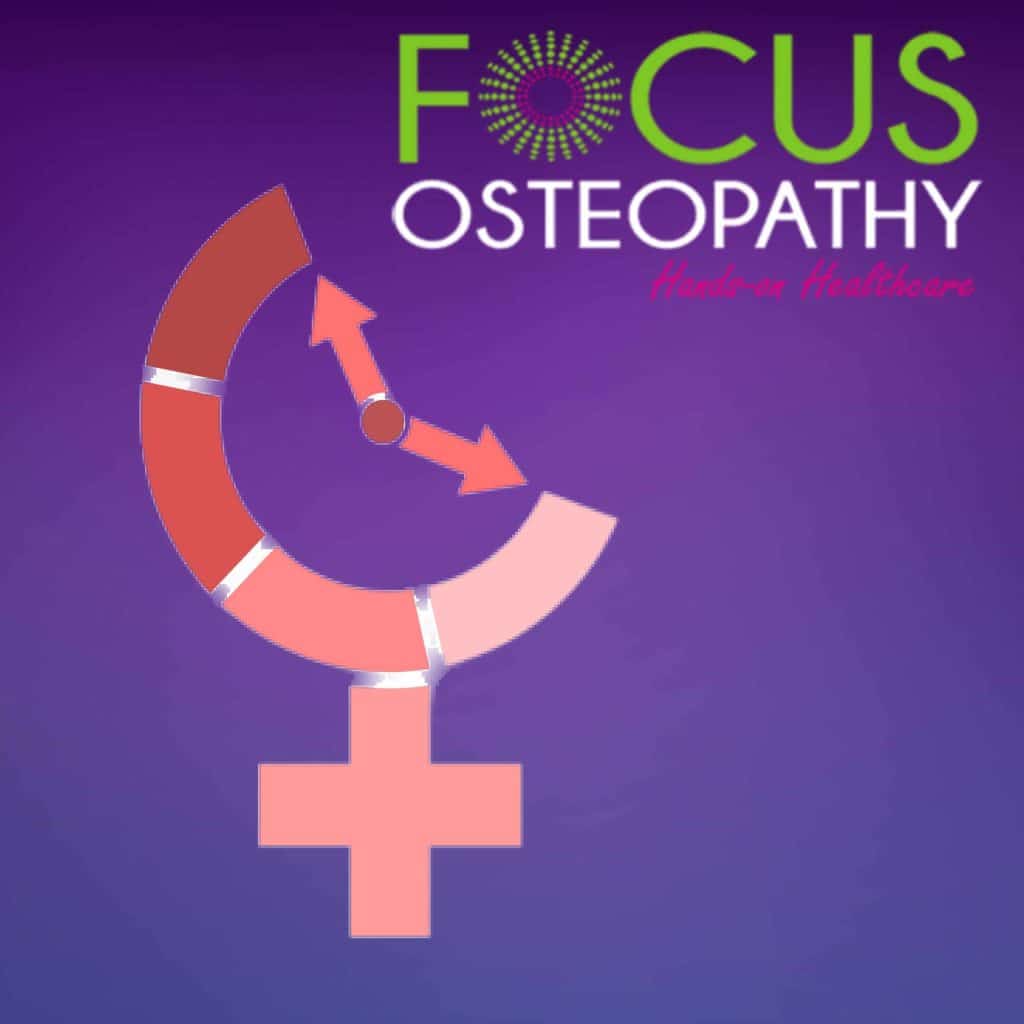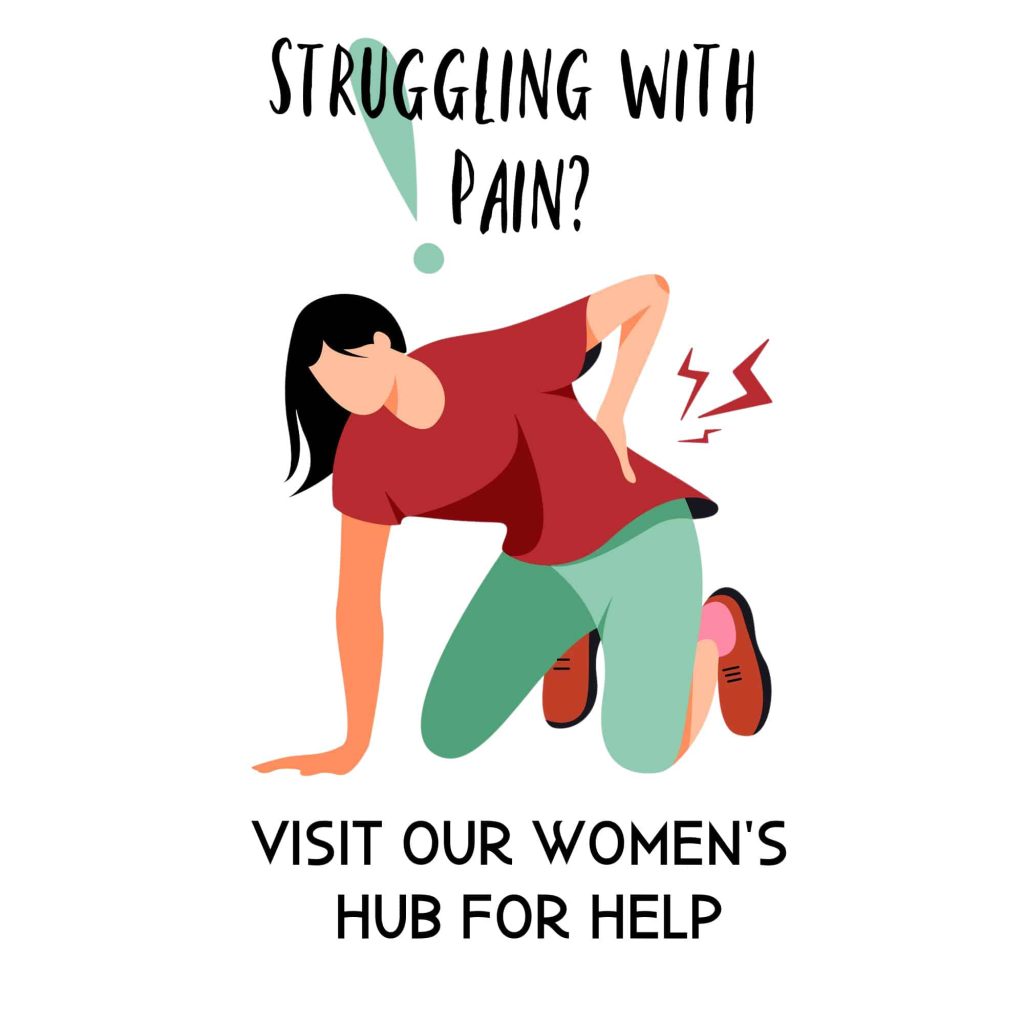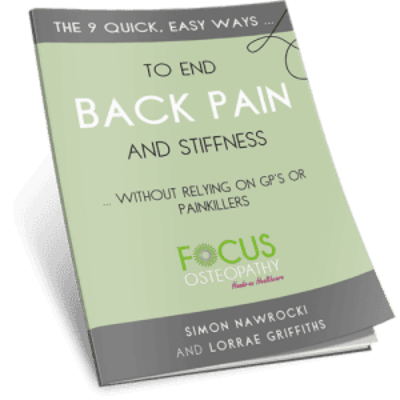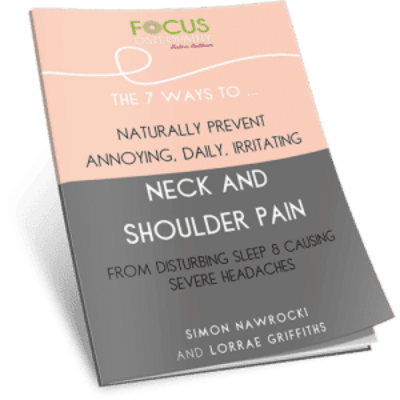Ah, menopause. The unwelcome visitor dropping by at the most inconvenient time.
If there were ever a word that could potentially strike fear, shame and palpable annoyance into a woman’s day-to-day life and mental state, it’s menopause. For many women, this phase is often dreaded to such an extent that the word itself seems almost taboo.
If menopause were a troublesome plot twist in a movie, you can picture a scene where someone utters something unmentionable and instantaneously, a whole room of people go deadly silent and look round aghast.
Menopause could easily be that unmentionable. You can imagine the uttering of ‘We do not speak of such things here’ after someone has either fainted or a valuable object has been loudly dropped. Seriously, it’s that bad.
More Healthcare Articles From Focus Osteopathy
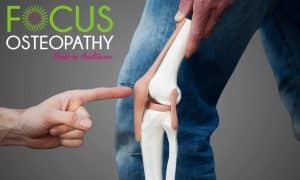
Knee Pain: The Good, The Bad, and the OUCH!

4 Reasons Swimming Is Good For Back Pain

8 Ways Neck Pain Can Disrupt Your Daily Life—and How Osteopathy Can Help

Understanding Back Pain: The Unwanted Companion
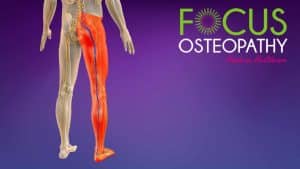
Does Massage Therapy Help Sciatica? 4 Things You Must Know

Neck Pain Exercises to Help You Sleep
It’s tempting for a woman to pretend menopause is something that just happens to other women. If she herself gets round to admitting it has landed, that moment has probably been avoided for as long as possible.
After the bane of monthly periods over many years, perhaps with brief interruptions of pregnancy and childbirth, it is perhaps naïve to believe a woman would be relieved to be menstruation-free. Some women indeed welcome the conclusion of their reproductive years but sadly the vast majority do not.
The fact that menopause lands within a woman’s mid-life does not help matters. This is usually a highly pressurized time where raising children, caring for aging relatives and juggling career demands are all simultaneously on-going, leading to exhaustion and overwhelm.
Menopause, and all the symptoms it brings, is the equivalent of an unwelcome visitor arriving at the most inconvenient time. You want to say ‘Now’s not a good time’ but menopause simply doesn’t listen. Annoying, huh?
But what actually is menopause anyway?
What is Menopause and Why Does it Happen?

Menopause is an entirely natural process that happens to every woman, usually occurring sometime between the late thirties and the late fifties. It is a process in which the two primary female reproductive hormones – estrogen and progesterone – begin to decrease, eventually leading to the complete cessation of a woman’s periods and therefore her ability to conceive.
Although menopause is an unavoidable biological phase in every woman’s life, the process is often anticipated and experienced with mixed feelings of dread, confusion and anxiety.
This is in part because the menopause varies in how it affects each individual woman and partly because menopause symptoms are commonly considered to be undesirable, unpleasant and embarrassing.
Add in the fact that menopause has elements of social stigma attached to it as well as the fact that doctors often do not clearly explain what is going on to the woman who is experiencing the process and you can begin to see how numerous factors stack up to make menopause feel like an unwelcome and stressful obligation that must simply be endured.
Another factor that contributes to many women dreading the menopause is the fact that many women are waiting longer than proceeding generations before they themselves start a family.
Progressing within a career or first trying to establish the foundations of a secure home and financial stability prior to conception now means that many modern women are delaying motherhood until their late thirties, mid-forties and even the early-fifties.
Unfortunately, menopause symptoms are not entirely clear cut, with no defining test to confirm if a woman has indeed gone into menopause, hence why a woman’s mid-life is often termed ‘the crisis years’ as she inevitably panics that she may have left starting a family too late.
Going from a regular monthly cycle to erratic menstruation and finally a non-existent cycle is what leads up to menopause, with both symptoms and the various stages of the process taking place over many years.
So what are the different stages and what can be expected?
Perimenopause

Of all the stages of menopause, perimenopause is the least understood, the most confusing and the most challenging phase as well as the longest. The term Perimenopause can be translated as ‘before menopause’ but many women would argue it is actually the main event and it can certainly feel like it! Why so?
Perimenopause is the beginning of the menopausal process but a woman is not considered, in medical terms, to be menopausal as she goes through this first stage. Confusing? Yeah, we hear you!
Perimenopause is not regarded as the menopause because menopause is defined as only being a day in length. Meanwhile, perimenopause is the lead-up to that point and that particular day. As we work through the various stages, this will begin to make sense. For the time being, let’s focus on perimenopause.
As a woman moves into her mid-thirties and beyond, it is normal for her fertility potential to decrease. Unless she has been diagnosed with a gynecological condition that can affect her period, she is likely to still have a regular cycle while not registering any unusual symptoms relating to her menstruation.
However, things are beginning to subtly change. The quality of her eggs naturally begins to decrease and the number of eggs that remain in her ovaries are getting lower. Additionally, at some point, her reproductive hormones of estrogen and progesterone will begin to decrease too.
It is usually progesterone that begins to lower first with estrogen following in step slightly later. When these hormones lower enough, she will cease menstruating altogether.
In the meantime, as she continues to get older awaits what many would consider a ‘wild ride’ as these two reproductive hormones become unbalanced with each other, causing multiple menopausal symptoms and changes to the periods themselves.
Symptoms such as night sweats, increased anxiety, fatigue, unexpected weight gain, migraines and feeling faint begin to make themselves known as the reproductive hormones decrease. Meanwhile, the timing of the reproductive cycle usually becomes somewhat unpredictable as menstrual bleeding often becomes heavier while the periods themselves lengthen.
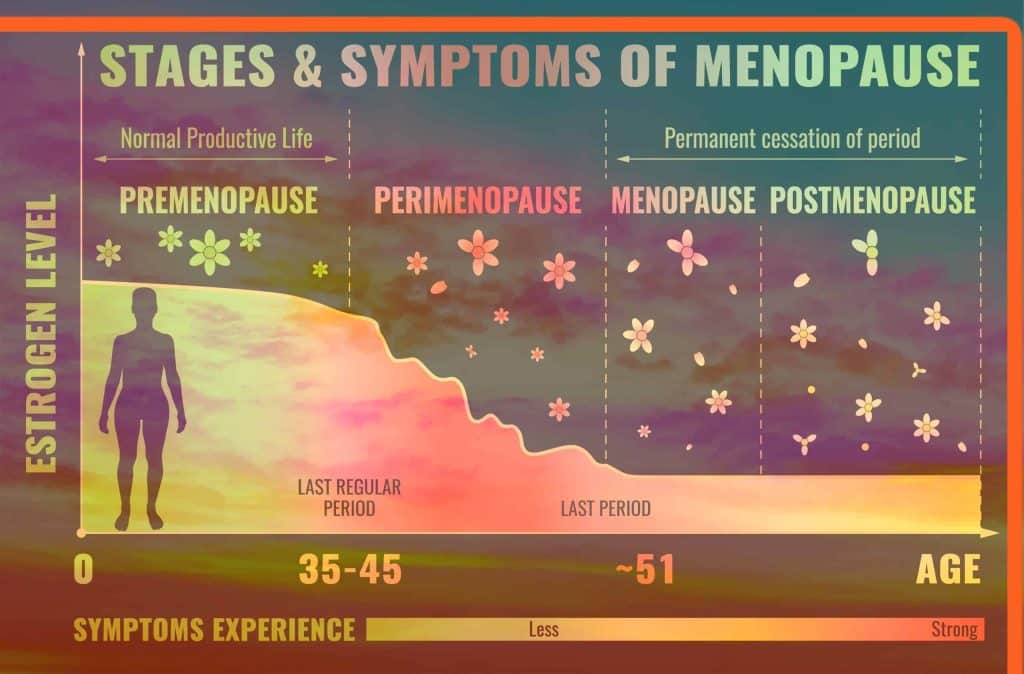
It can be helpful to compare a perimenopausal woman’s cycle – as it becomes increasingly erratic – to a mechanical engine that is coughing and spluttering. It is unclear if the engine is either going to stall or kick into full swing.
Similarly, as a woman’s body increasingly tries to produce progesterone and estrogen while she herself is getting older, her periods will come and then temporarily disappear before coming back all over again.
This is when perimenopausal confusion peaks because it is entirely possible to have semi-regular periods while also having symptoms associated with the menopause in between.
Gradually, as this phase of perimenopause begins to wind down, a woman’s periods will become lighter and less frequent. It is common for many months to pass with no period at all and then suddenly another. Eventually, this will cease and when this occurs, so begins the next phase.
Menopause

Following on from perimenopause is menopause itself. Unexpectedly, for all the talk of women ‘going through the menopause’ and the previous phase’s symptoms being mistaken for menopause, the big event is actually only a day in length.
In medical terms, a woman is usually regarded as having been through the menopause and therefore menopausal if she has not had a period for 12 consecutive months. More cautious estimates recommend waiting 24 months before menopause is officially deemed as having occurred.
Either way, menopause is merely a point in the calendar that marks either 12 or 24 months since she had her last period. Menopause marks the point where a woman’s eggs have run out and menstruation has ceased. Although she will still have a low level of reproductive hormones residing in her body, at this point she is no longer able to conceive.
Postmenopause
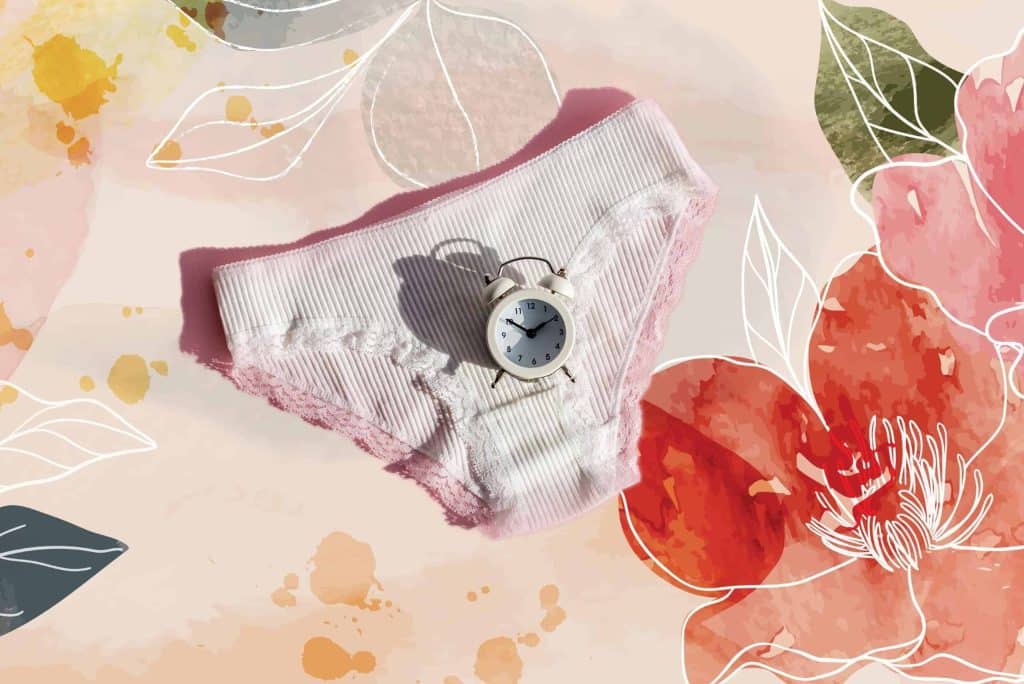
Postmenopause is the final stage of the menopausal process and is one that a woman will remain in for the rest of her life beyond the official marking point of menopause.
Throughout postmenopause, a woman’s reproductive hormones will continue to reside albeit at a minimal level. Although this is natural, the significant reductions in both progesterone and estrogen mean that it is a good idea for a woman to incorporate lifestyle changes within this stage in-order to prevent other health issues from arising.
For example, reduced estrogen levels can drastically increase a woman’s risk of osteoporosis and therefore the possibility of broken bones.
Additionally, as metabolism naturally slows with age, unintended weight gain can also occur. This, in turn, can lead to an increased risk of cardiovascular disease as well as a variety of musculoskeletal problems.
It is therefore important for a postmenopausal woman to keep active with a strong focus being on building muscle mass, thereby boosting metabolism while also reducing the risk of many conditions and problems closely associated with aging.

